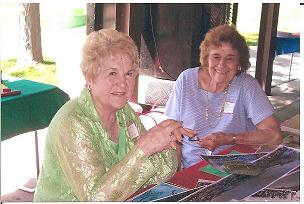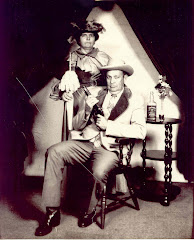Joyce Mathie’s friends say she doesn’t know the meaning of mandatory retirement. At age 71, she’s still working at Sargent Steam, the business she founded at age 57, when most of her friends were already anticipating their last day of work.
“My house and car were paid for. My children were raised. In many ways, it was the perfect time. And if something speaks to your spirit, you become good at it.”
The concept of sales first spoke to Mathie’s spirit in 1972. Back then, she taught new Bernina owners how to operate their sewing machines. It was an exciting time for her — an era when many women sewed all of their own clothes along with the outfits their children wore.
But as much as Mathie enjoyed demonstrating blind hems and zigzag stitches, the seeds of her entrepreneurial future were already sprouting in her mind. She saw that while she worked in the Bernina store, teaching the “customer care class” and rearranging fabrics and patterns, men who sold sewing machines on commission made a lot more money than she did.
“I want to sell the machine,” she told her boss. But when he replied, “Housewives can’t sell,” Mathie felt angry. Her boss emphasized that while working in the store, she didn’t really demonstrate salesmanship – she only “got the naturals.” “I learned that he was right,” Mathie admits. “But so was I.”
One day, a salesman brought a series of Tom Hopkins’ sales tapes to the Bernina store. “The way they sold the tapes then was that they dropped them off, saying they would be back for them in a week,” Mathie recalls. After listening to the tapes briefly, she urged her boss to buy them, feeling sure that they would enhance her sales skills.
“People think that pushy salesman are born, but sales is like any other skill – it’s learned,” says Mathie.
From the tapes, she learned how to ask for orders and how to close a sale with a final question that might be, “Are you ready to go ahead today?”
She adds, “After you ask that last closing question, be quiet. People think that to be a salesman, you have to talk a lot. In reality, if you are good at sales, you listen a lot.”
She says that salespeople learn to read whether a prospect is truly engaged in what they are selling. “If you were looking at a Bernina, and hadn’t even made your mind up whether you wanted one, if I started cutting the price, it would mean absolutely nothing unless you wanted it.
“You learn to verbally dance with people when you sell. You can’t win them all.” But when a salesperson closes a sale that she knows is a hard one, she feels elated, and the thrill is great, says Mathie. “ It’s the most fun profession I can think of.”
Today, Mathie’s entrepreneur daughter, Debbie Chidester, is proud that her mother pursued her sales ambition. “She had to buck the owner of the company, but she envisioned that women could sell if they did it differently from the men who were already selling from the store.”
Mathie gathered the information she had learned about sewing and developed the concept of demonstrating sewing machines at home parties. When a client at the store became excited over stitching a beautiful patched pocket or spaghetti strap, Mathie said, “You ought to have a few of your friends come to your home for a demonstration. We’ll also give you $25 to spend in the store like money.”
The home party experience further honed Mathie’s sales skills.
She sold sewing machines at home parties for 10 years. During that time, she also demonstrated the machines at home economics classes in high schools and middle schools.
Meanwhile, a cultural change took place. More and more women who once sewed shelled edges on tricot or serged their children’s T-shirt seams now worked outside the home.
“There was far less time to sew,” she says.
Leaving Bernina in 1984, she completed a “fitting” class in New York and became a home based dressmaker for two years. Then – although she returned to her love of sales in a variety of endeavors – the spark wasn’t the same.
“They just didn’t make my heart sing,” Mathie recalls. “I was kind of lost during the next 10 years. It wasn’t the happiest time of my life.”
The life-changing day that led to starting her own business hardly seemed hopeful. She was standing in a state fair trade show booth. Her feet hurt and her back ached. She didn’t want to be there. But suddenly she caught a glimpse of Peter Foss, the marketing director she’d worked with at Bernina. The cultural change had affected him, too, he wasn’t selling as many knitting machines as before. “People didn’t want to sit home and knit any more,” Mathie says.
Foss asked Mathie to test market a new product he had just brought back from Switzerland. It was the first steam cleaner made available in the United States.
“It turns water into steam, which we found melts away the dirt,” says Mathie. She and her husband, Alex, “took that machine home and played with it. We both love good tools, and we literally fell in love with it.” Because she suffers from fibromyalgia, “getting down on my hands and knees was a joke,” says Mathie.
Because the Sargent Steam machine included extensions that made it possible to clean all surfaces while sitting or standing – even from a wheelchair if necessary – it made it possible for Mathie to clean her home. She shared the machine with her friends and relatives, and gave each of her children one for Christmas.
She began selling the machine from her home. In three years, she hired an assistant and doubled her sales staff. In 1998, she officially started her own business. She kept the name, Sargent Steam, because it was the same as the toll-free number Foss had originated. In 2000, she leased a building.
In August 2001, she bought her own building, doubling her space. That same year, she generated 1.3 million in sales. Mountain West Venture Group named her company as the 31st fastest growing company in Utah.
How did she repeat the earlier success she had enjoyed with Bernina? “Joyce is 71, but she keeps going like a 41-year-old businesswoman, which gives meaning to her life,” says Dian Thomas, TV personality and author who has coached Mathie about public relations. “One thing I admire about Joyce is that she is willing to learn anything and find new answers and new ways to do things. The computer world may challenge her, but she’s taking seminars and learning and growing.”
“Joyce has the vision, passion and energy that it takes to be a true entrepreneur – she’s an example of the American dream,” says Foss, who is now adjunct professor in strategy for MBA students at Westminster College and executive director of International for Urana. “If America had a lot of Joyces, our country wouldn’t be lagging behind, and we could really get America to the next level rather than waiting for China or India to move ahead of us. She has a clear purpose, clear mission and her vision and values are in place.”
Thomas further admires Mathie’s attitude and her confidence in becoming an entrepreneur “before women did that.” Mathie adds, “I’ve always admired strong women.” As a girl, her favorite book characters were strong women, such as Dorothy in the “Wizard of Oz.” Part of the appeal of her current business was that it could empower women both inside and outside the home.
Today, two of Mathie’s four daughters own their own businesses, and one works for her. “Both my parents were very strong and taught us there was nothing we couldn’t do,” says Debbie Chidester, who owns a specialty food company. And Mathie partially attributes her success to her own parents who instilled self-confidence and taught her to follow her own path.
“I’m also grateful to my boss at Bernina. I turned his negative attitude into my positive action and learned valuable skills that prepared me to take risks. That job provided me the experience that became the foundation I used to create my own company.”






